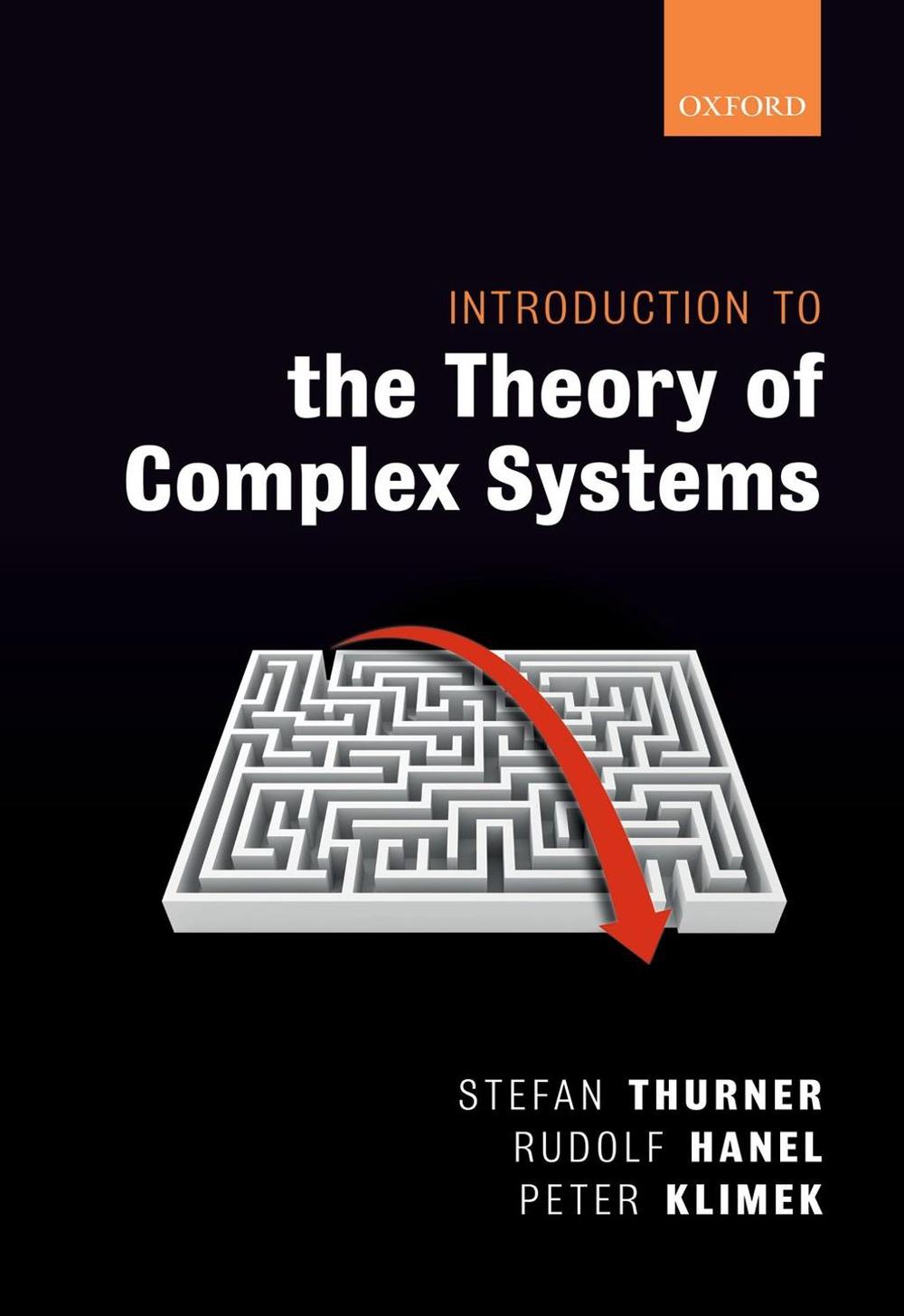
Introduction to the Theory of Complex Systems
$269.00
- Hardcover
448 pages
- Release Date
3 October 2018
Summary
This book is a comprehensive introduction to quantitative approaches to complex adaptive systems. Practically all areas of life on this planet are constantly confronted with complex systems, be it ecosystems, societies, traffic, financial markets, opinion formation and spreading, or the internet and social media. Complex systems are systems composed of many elements that interact strongly with each other, which makes them extremely rich dynamical systems showing ahuge range of phenomena. Prop…
Book Details
| ISBN-13: | 9780198821939 |
|---|---|
| ISBN-10: | 019882193X |
| Author: | Stefan Thurner, Rudolf Hanel, Peter Klimek |
| Publisher: | Oxford University Press |
| Imprint: | Oxford University Press |
| Format: | Hardcover |
| Number of Pages: | 448 |
| Release Date: | 3 October 2018 |
| Weight: | 1.02kg |
| Dimensions: | 252mm x 177mm x 27mm |
You Can Find This Book In
What They're Saying
Critics Review
Well written and structured * Ejay Nsugbe, Mathematics Today *The authors make an excellent job in describing their introduction to Complex Systems theory … The book is certainly an excellent start for students (who can find also a series of exercises in every chapter and for practioners). For scientists it is a useful handbook to find whatever needed to start their journey in Complexity Science. * Guido Caldarelli, IMT Alti Studi Lucca, Mathematics Magazine *It seems to me that the authors have succeeded admirably in their aims and that, by helping to train and enthuse the next generation of researchers on complex systems, their book will contribute substantially towards overcoming any possible bottleneck that is impeding further progress. * Peter V. E. McClintock, Department of Physics, Lancaster University, Contemporary Physics *This book is a comprehensive introduction to quantitative approaches to complex adaptive systems, starting from basic principles. It also equips the reader with a basic self-contained toolkit for engaging in complex systems science. It extends earlier classical literature in the field to summarize in a clear, structured, and comprehensive way the methodological progress made in complex systems science over the past 20 years. * Mathematical Reviews Clippings *This book will surely become a standard text for anyone who wants to seriously understand complexity no matter what their background or stage of career. It is written from a physicists perspective, stressing mechanism, underlying principles and mathematical rigour, yet is eminently readable and pedagogical. * Geoffrey West, Santa Fe Institute *Complexity until now has been lacking a strong theoretical underpinning. Now it has one. This book is a tour de force. Excellent! * W. Brian Arthur, Santa Fe Institute *
About The Author
Stefan Thurner
Stefan Thurner is full professor for Science of Complex Systems at the Medical University of Vienna, where he chairs the Section for Science of Complex Systems. He is external professor at the Santa Fe Institute, senior researcher at IIASA, and president of the Complexity Science Hub Vienna. He obtained a PhD in theoretical physics from the Technical University of Vienna and a PhD in economics from the University of Vienna. He held postdoctoral positions atHumboldt Universität zu Berlin and Boston University before joining the faculty of the University of Vienna and later Medical University. Stefan started his career with contributions to theoretical particlephysics and gradually shifted his research focus to the understanding of complex systems. He is the author of more than 200 scientific articles. Peter Klimek is Associate Professor at the Section for Science of Complex Systems at the Medical University of Vienna and faculty member of the Complexity Science Hub Vienna. His research interests include network medicine, complexity economics, modelling of collective socio-economic phenomena, electoral fraud detection, as well as novel methods tomeasure systemic risk. Rudolf Hanel is Associate Professor at the Section for Science of Complex Systems at the Medical University of Vienna and faculty member of the Complexity Science Hub Vienna. Hisresearch interests range from applications in medical physics to theoretical work on the behaviour of driven regulatory systems with a focus on mathematical issues.
Returns
This item is eligible for free returns within 30 days of delivery. See our returns policy for further details.




